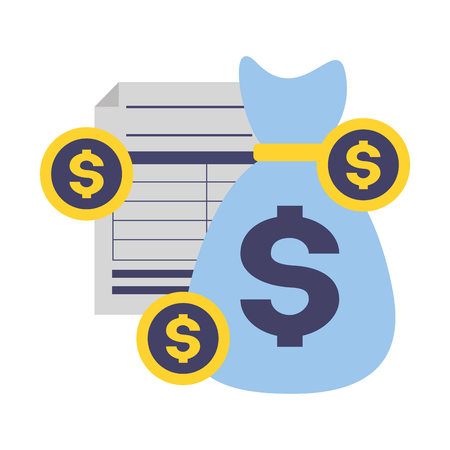Understanding Your IRS Letter
If youre a freelancer in the United States, receiving a letter from the IRS can instantly spike your anxiety. But before you panic, its essential to decode what the notice actually means for you. The IRS sends out various types of letters—some are just reminders, while others may indicate issues with your tax return or unpaid tax debt. For freelancers, these notices often revolve around discrepancies in reported income, missing 1099 forms, or underpayment of estimated taxes. Many freelancers juggle multiple gigs and receive income from several sources, making it easy to overlook a form or miscalculate payments. When the IRS spots inconsistencies or missed payments, theyll send a letter detailing the issue and what action you need to take. Understanding why you received this letter is the first step toward finding a solution—dont ignore it, as prompt attention can prevent bigger problems down the road. By recognizing common triggers like late filings, underreported income, or confusion over self-employment tax obligations, you’ll be better equipped to respond effectively and keep your freelance business on solid ground.
2. Keeping Calm and Getting Organized
When you receive a letter from the IRS or realize your tax debt is piling up, it’s easy to feel overwhelmed. As a freelancer, you might already juggle unpredictable income and expenses, so adding tax worries can seem like too much. But staying calm is your first step toward taking control. Here’s how to mentally handle tax stress, gather what you need, and set up a plan for action.
How to Mentally Handle Tax Stress
The first thing to remember: IRS letters are not the end of the world. Most notices are routine and can be resolved if you act promptly. Take a deep breath, remind yourself that many freelancers have been in your shoes, and avoid letting anxiety paralyze you. Try these quick tips:
- Pause before reacting: Read the letter carefully. Don’t ignore it, but don’t panic either.
- Talk to someone: Share your situation with a trusted friend or financial advisor—it helps put things in perspective.
- Focus on facts, not fears: Deal with what’s actually in the notice, not worst-case scenarios.
Gathering Essential Documents
Getting organized will make everything easier. Before responding to the IRS or making decisions about your debt, collect all relevant paperwork. Here’s a table outlining what you’ll typically need as a freelancer dealing with tax issues:
| Document Type | Examples | Why It’s Important |
|---|---|---|
| IRS Notices | CP14, CP501 letters | Details what you owe and deadlines |
| Income Records | 1099 forms, PayPal/Stripe reports | Verifies reported income matches IRS data |
| Expense Receipts | Invoices, receipts for supplies/software | Lowers taxable income through deductions |
| Previous Tax Returns | Last year’s 1040 & schedules | Reference for reported income/deductions |
| Bank Statements | Your business checking account records | Supports both income and expense claims |
Setting Up an Action Plan
Once you have your documents together, map out your next steps. This can help transform stress into progress:
- Create a timeline: Note any response deadlines from the IRS.
- Pencil in time: Set aside specific hours this week for tackling each step—don’t try to do everything at once.
- If needed, get help: Reach out to a CPA or an Enrolled Agent experienced with freelancers if things feel too complicated.
- Write down your questions: If you’re contacting the IRS or a tax pro, having a list keeps conversations focused.
- Acknowledge small wins: Celebrate each completed step; progress builds confidence!
The Takeaway: Progress Over Perfection
No matter how daunting tax debt feels right now, taking small steps to organize yourself is half the battle won. By keeping calm and methodically gathering what you need, you’ll be ready to tackle whatever comes next—and maybe even turn this challenge into a chance to level up your freelance finances.

3. Exploring Your Payment Options
When you’re faced with tax debt as a freelancer, it’s easy to feel overwhelmed by the numbers and those official IRS letters. But here’s some good news: the IRS actually offers several practical payment solutions designed to help people just like you get back on track—without draining your bank account or leaving you feeling hopeless.
IRS Payment Plans: Flexibility for Freelancers
If you can’t pay your full tax bill right away, consider applying for an IRS payment plan (officially called an “Installment Agreement”). This option lets you break down what you owe into manageable monthly payments. There are short-term plans (up to 180 days) and long-term plans (more than 180 days), and you can often apply online if your debt is under $50,000. Just remember, interest and penalties may still apply until the balance is paid off, so it’s smart to pay more than the minimum if you can swing it.
How to Get Started:
- Log into the IRS Online Payment Agreement tool.
- Gather your recent IRS notices and personal information.
- Follow the prompts to set up your plan—choose an amount that fits your budget.
Offers in Compromise: Settle for Less Than You Owe
If paying in full would create genuine financial hardship, the IRS may accept an Offer in Compromise (OIC)—essentially letting you settle your debt for less than what you owe. While not everyone qualifies, freelancers experiencing serious financial difficulties, such as medical emergencies or business downturns, should definitely explore this option.
How to Get Started:
- Check if you qualify using the IRS Pre-Qualifier Tool.
- Complete Form 656 and Form 433-A(OIC).
- Be prepared to provide documentation of income, expenses, and assets.
Penalty Relief: Reduce Added Charges
The IRS may also grant penalty abatement or relief if you’ve got a good reason for falling behind—think unexpected illness, natural disaster, or other serious life events. Even first-time offenders can sometimes get penalties waived through the First Time Penalty Abatement program. Remember: The sooner you ask, the better your chances.
How to Get Started:
- Call the IRS at the number listed on your notice or use their online resources.
- Explain your situation clearly and provide supporting documentation.
Tackling tax debt as a freelancer is tough, but knowing your options is half the battle. With these strategies in hand, you can start building a path toward financial stability—and turn those scary IRS letters into manageable steps forward.
4. Communicating with the IRS Like a Pro
Getting a letter from the IRS can feel like a punch in the gut, but effective communication is your ticket to resolving issues and keeping stress levels down. As a freelancer, it’s crucial to address IRS notices promptly and professionally. Here’s how to handle these communications like a seasoned pro.
Tips for Responding to IRS Letters
The IRS isn’t out to get you—they just want clarity on your tax situation. Start by reading the letter thoroughly. Note what they’re asking for: Is it missing information, unpaid taxes, or something else? Always respond by the deadline stated in the letter. Ignoring IRS correspondence only makes things worse, so don’t procrastinate.
What to Say (and What Not to Say)
| Do | Dont |
|---|---|
| Stick to the facts provided in the letter. | Add unnecessary personal stories or emotions. |
| Be polite and respectful in all correspondence. | Use aggressive or defensive language. |
| Include any requested documents or forms. | Send irrelevant paperwork that may confuse your case. |
| Ask clarifying questions if something is unclear. | Ignore instructions or deadlines mentioned in the notice. |
If you need more time, it’s okay to request an extension—just do so before any deadlines pass. If you made a mistake, admit it honestly and explain how you’re fixing it. Honesty builds trust and can help your case go smoother.
How to Maintain Clear Communication
Keep copies of every letter you send and receive. Document phone calls with dates, times, and names of IRS representatives you speak with. Organize your records so you can easily reference them if needed later. When mailing documents, use certified mail with return receipt requested for proof of delivery.
When to Seek Professional Support
If you feel overwhelmed or your issue is complex—like owing a large amount, facing penalties, or getting audited—it’s smart to bring in a tax professional such as a CPA, enrolled agent, or tax attorney. They can speak the IRS’s language and advocate on your behalf. Don’t wait until things spiral out of control; even just one consultation can provide peace of mind and a clear path forward.
5. Staying Ahead: Preventing Future Tax Debt
One of the smartest moves you can make as a freelancer is to stay one step ahead of tax troubles. It’s not just about dealing with IRS letters when they come—its about building habits that keep them from ever landing in your mailbox again. Here’s how you can set yourself up for long-term peace of mind and financial freedom.
Master Smart Record-Keeping Habits
First things first: solid record-keeping is your best friend. Use apps or spreadsheets to track every dollar you earn and spend, especially business-related expenses like software, home office supplies, or travel. Keeping receipts and digital copies ensures you’re always ready if the IRS asks for proof. Make it a routine to update your records weekly—you’ll thank yourself at tax time.
Nail Your Estimated Quarterly Payments
The IRS expects freelancers to pay taxes four times a year—not just in April. Missing these payments can lead to penalties and snowballing debt. To avoid surprises, estimate your quarterly taxes based on last year’s income or use online calculators tailored for freelancers. Mark payment deadlines on your calendar and set reminders so you never miss a due date.
Freelancer-Friendly Budgeting Hacks
Budgeting doesn’t have to be a bore. Try the “tax bucket” method: every time you get paid, immediately set aside 25-30% of your earnings in a separate savings account just for taxes. Some freelancers automate transfers so they don’t even have to think about it. Also, consider using financial tools designed for gig workers—they’ll help you budget for both slow seasons and busy months, smoothing out your cash flow and preventing panic when tax bills arrive.
Stay Proactive, Not Reactive
Preventing tax debt isn’t just about paperwork—it’s about taking control of your freelance finances and staying proactive. By building smart habits now, you can avoid the stress of surprise IRS letters and keep more of what you earn for what matters most to you.
6. Bouncing Back Stronger: Turning Setbacks Into Growth
If you’ve ever opened your mailbox to find an IRS letter or felt the weight of tax debt as a freelancer, you’re not alone. Many self-employed Americans have faced these challenges and turned them into powerful turning points. Let’s explore some inspiring true stories and actionable steps that show how tax setbacks can become stepping stones to greater financial confidence and resilience.
Inspiring Stories from Real Freelancers
Take the story of Sarah, a graphic designer from Austin. When she received her first IRS notice, panic set in—but instead of ignoring it, she reached out to a local tax professional who helped her understand her options. Through consistent communication with the IRS and setting up a manageable payment plan, Sarah not only paid off her debt but learned to track her expenses better and set aside money for taxes each month. Today, she coaches other freelancers on avoiding similar pitfalls.
Or consider Mike, a freelance web developer in Chicago, who ignored his tax issues for years until penalties piled up. After attending a free IRS workshop at his local library, Mike took action—he negotiated an Offer in Compromise and started using accounting software to keep his finances on track. Now, he sees his past mistakes as essential lessons in building long-term business sustainability.
Actionable Steps to Transform Tax Challenges
- Face the Problem Head-On: Don’t ignore IRS letters or overdue taxes. Open every letter, understand what is being asked, and respond promptly.
- Seek Support: Whether it’s a tax professional, online resources, or community workshops, getting help early can prevent small problems from becoming big ones.
- Embrace Learning: Use this experience as motivation to improve your budgeting and record-keeping habits. Invest in simple tools or apps that make tracking income and expenses easier.
- Create a Savings Buffer: Set aside a percentage of every payment for future taxes—treating taxes like any other monthly bill protects you from surprises down the road.
The Power of Resilience
Bouncing back from tax debt isn’t just about clearing your balance—it’s about developing habits that make you stronger financially and emotionally. Every setback contains the seeds of growth if you approach it with courage and curiosity. Remember: facing your tax challenges head-on is the first step toward transforming them into lasting opportunities for self-improvement. Your freelancing journey can be richer—and more resilient—because of what you learn along the way.


